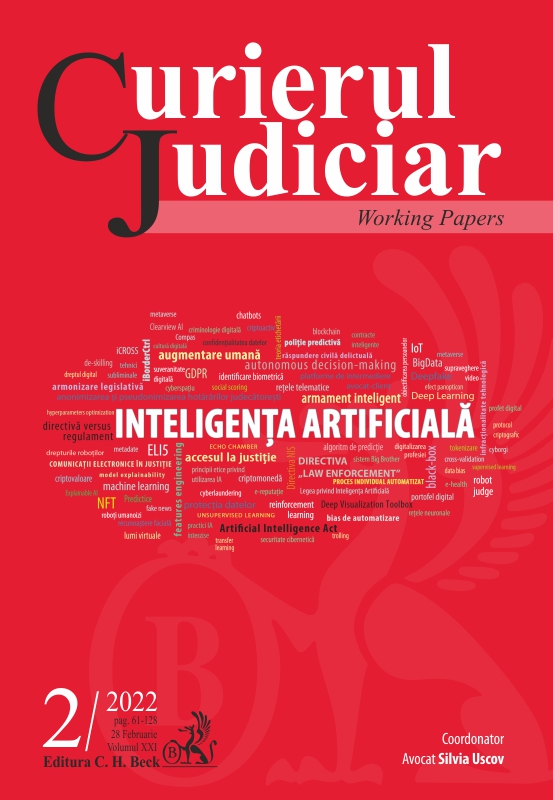Cât de inteligent este Artificial Intelligence Act?
How Smart is the Artificial Intelligence Act?
Author(s): Silvia Uscov, Adrian GrozaSubject(s): Law, Constitution, Jurisprudence, Human Rights and Humanitarian Law, ICT Information and Communications Technologies, EU-Legislation
Published by: C.H. Beck Publishing House - Romania
Keywords: artificial intelligence; human rights; Artificial Intelligence Act; biometric classification, control and surveillance systems; social scoring;
Summary/Abstract: We are analyzing the proposal for an EU Regulation on Artificial Intelligence of April 21, 2021 (AIA) and the opinion of the European Economic and Social Committee (EESC) of 22.12.2021 on AIA. The AIA proposes an approach based on the classification of artificial intelligence applications into four different levels of risk: "unacceptable risk", "high risk", "limited high risk" and "minimum risk". The stated aim of AI regulation at EU level is to avoid fragmentation of the internal market by establishing a uniform legal framework that facilitates the development, commercialization and use of AI systems in line with EU values. In this regard, we analyze the individual and fundamental rights and freedoms affected by AI technologies in relation to legislative instruments adopted at EU level or the European Convention on Human Rights, as well as according to the European Parliament Resolution of 06.10.2021 on AI in criminal law. Finally, we present technical ways to counteract the negative impact of AI technologies from the perspective of five dimensions that involve the use of: (1) AI standards; (2) internal audit methods; (3) AI software engineering methods, (4) regulatory test sites, (5) bias evaluation metrics, and bias reduction algorithms.
Journal: Curierul judiciar
- Issue Year: XXI/2022
- Issue No: 2
- Page Range: 70-83
- Page Count: 14
- Language: Romanian
- Content File-PDF

